What are the best habits to change when you are over 50 and don't want a brain attack?
First, when a person passes fifty, most of his life has passed, he has already settled down, his parents are already old, and his children have already started their own families.
People over fifty, running around for most of his life, Chinese hair has been born, the body's organs do not stop working for more than fifty years, the metabolism, old age, disease and death, the laws of nature, manpower can not be resisted, the whole body organs have been presented with the trend of decline, the disease naturally take advantage of the weakness. Anyone in front of the disease is so small and helpless, the disease is merciless, it will not because you have had much achievement before, have done much contribution will be merciful to you. Disease is cruel and cold-blooded to everyone.
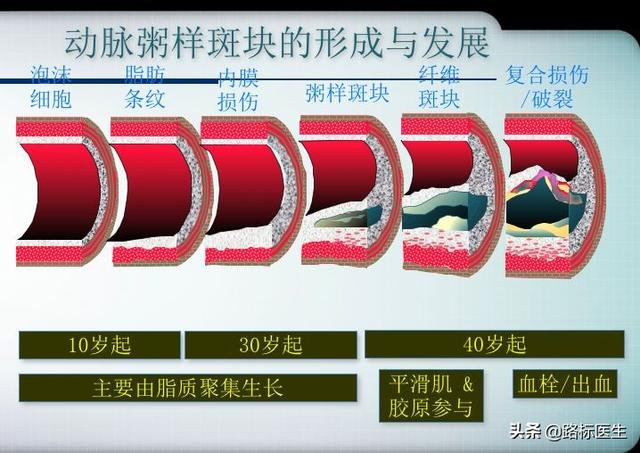
Second, people over fifty, do not want to brain infarction, need to change these habits:
1, to change the high-mindedness, bravado and triumphalism. People over fifty, first of all, we must correct the mentality and their own position, is no longer young, need to converge the right amount of arrogance, maintain a calm mind, not temperamental, not to show off for a while, beyond their own strength to achieve the purpose.Cerebral infarction, cerebral hemorrhage, angina pectoris, cardiac infarction, heart failure, and elevated blood pressure, many times occurring due to emotional changes and after exertion, areThe most common predisposing factors in the clinic。
2, change the swallowing of clouds and fog, and push the cups to change. People over fifty, should do "subtraction", narrow the circle, push away the unnecessary entertainment, quit smoking and alcohol. Research data show that active smoking and passive inhalation of second-hand smoke will increase the risk of stroke, coronary heart disease, heart failure and other cardiovascular diseases and death; smokers cerebral infarction increased by 3.7 times the incidence of diabetes increased by a factor of 1, coronary heart disease increased by a factor of 5; 50 years of age to start quitting smoking can extend the life expectancy of 6 years.Therefore, you should quit smoking completely and stay away from secondhand smoke.. Increasing the risk of high blood pressure, strokes and other diseases as alcohol consumption increases.Alcohol consumption should be limited(Alcohol intake <25g/d for men and <15g/d for women, <50ml of liquor or <100ml of wine or <300ml of beer per day).
3, change the high salt and sugar, big fish and meat. People over fifty, should be light and balanced diet. High sodium salt, high sugar, high fat diet, is hypertension, diabetes, hyperlipidemia risk factors, while these diseases are the main risk factors for cerebral infarction. An average increase of 2g/d in dietary sodium intake increases systolic and diastolic blood pressure by 2.0 and 1.2mmHg respectively, and it is currently advocated that the daily intake of sodium should be no more than 5g, and the intake of potassium-rich foods (e.g., fresh fruits, vegetables, and legumes) should be increased, the intake of fish, eggs, soybean products, and dairy products should be moderated, and the intake of whole grains, omnivorous grains, soybeans, and potatoes should be increased, and the intake of processed meat, saturated fatty acids, and cholesterol should be reduced. cholesterol intake, reduce the intake of sugary drinks, and drink tea in moderation.
4, change the late night entertainment, late to bed and late to rise. People over fifty, need regular work and rest time. The optimal sleep time is 6-8 hours, difficulty in falling asleep and sleep maintenance disorders increased by 27% and 11% of cardiovascular and cerebrovascular events, respectively.
5. Change your sedentary lifestyle and let go of your weight. If you are over 50, you need to move and manage your weight. It is recommended that moderate intensity aerobic exercise, cycling (speed <16km/h), walking (speed ≤6.4km/h), dancing, home activities, 150min per week, such as physical conditions allow can be increased to 300min. control body weight (BMI <24kg / ㎡, waist circumference: men <90cm, women <85cm), BMI is greater than 24 of the risk of hypertension is the risk of normal body mass of 3-4 times; waist circumference of men >90 women >85 of the risk of hypertension is normal, the risk of hypertension is the risk of normal body mass of 3-4 times; waist circumference of men >90 women >85 of the risk of hypertension is normal. The risk of hypertension for those with BMI greater than 24 is 3-4 times that of normal body mass; the risk of hypertension for those with waist circumference greater than 90 for men and 85 for women is more than 4 times that of normal.
6, change the taboo on medical treatment, do not think. People over fifty, not compared to young people, a little cold and fever to endure the past, if there are uncomfortable symptoms should be promptly diagnosed and treated. At the same time is high blood pressure, diabetes, hyperlipidemia, cardiovascular and cerebrovascular diseases and other high incidence of age, and hypertension, hyperglycemia, hyperlipidemia, and most people do not have obvious symptoms, many people are found through physical examination. The overall hypertension awareness rate of hypertensive patients in China is less than 50%. People over fifty, at least 3-6 months to measure the blood pressure, of course, when possible, it is best to monitor often; ideal blood pressure should be ≤130/80 mm Hg, fasting blood glucose should be in the 3.9-6.1 mmol / L, glycated hemoglobin <6. 0%, cholesterol in the 5.7 mmol / L, triglycerides in the 2.1 mmol / L or less. It is best to have an annual physical examination to detect problems and treat them promptly.

Third, in conclusion, people over fifty need a healthy lifestyle in order to reduce the incidence of cerebral infarction. A healthy lifestyle can prevent 80% of cardiovascular and cerebrovascular diseases and type 2 diabetes mellitus, 55% of high blood pressure, and 40% of tumors, thus preventing strokes.
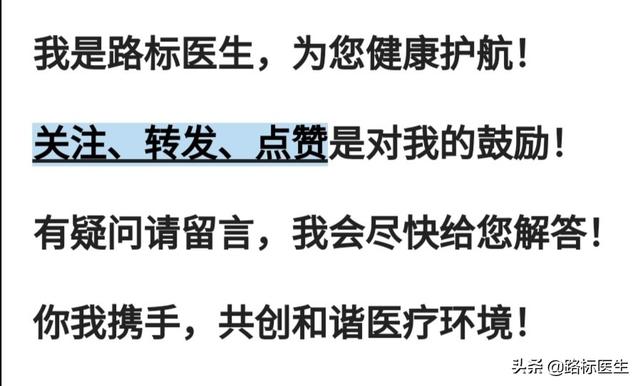
We often hear of people who were working normally yesterday, but today they suddenly collapsed and lost consciousness and were taken to the hospital by ambulance. Although they recovered their lives after rescue treatment, the movement of their hands and feet is no longer flexible, or they are bedridden, thus changing the work and life of the individual and the whole family, which is a typical example of stroke.

而Ischemic stroke is the most common type of stroke, also known as cerebral infarction or cerebral infarction, or simply cerebral infarction.
How does a brain attack occur?
Brain cells get oxygen and nutrients from the blood, and when the blood vessels in the brain are blocked and blood flow is poor, the blood supply will be insufficient. As a result, brain cells become under-oxygenated and malnourished, resulting in localized lesions. The word "deficiency" means "empty" and "insufficient", and ischemic stroke is exactly "stroke caused by insufficient blood". Ischemic stroke is exactly "stroke caused by insufficient blood".
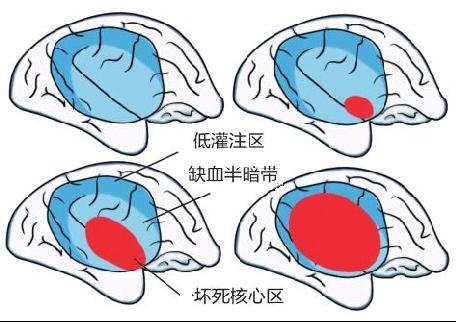
Cerebral infarction is a state of partial brain cell death caused by cerebral ischemia. If the blockage of the blood vessel is temporary, blood flow will quickly return to flow, a condition known as transient ischemic attack (TIA). Symptoms such as numbness in the limbs of a TIA patient will also disappear within 24 hours or less.
Atherosclerosis is the first "killer" of cerebral infarction.
Atherosclerosis is a phenomenon in which fatty components of the blood, such as cholesterol, adhere to the inner walls of the blood vessels, thereby thickening and hardening them. If you think of a blood vessel as a water pipe, then the rust or scale that adheres to the inside is what we call atherosclerosis. Atherosclerosis is one of the aging phenomena that cannot be avoided, but sometimes it can overtake aging. The development of atherosclerosis results in thickening of the inner lining of the arteries, plaque formation, narrowing of the blood vessels, and occlusion of the blood vessels. Atherosclerotic blood vessels are prone to injury, and injured vessel walls are more prone to thrombosis and eventual blockage.
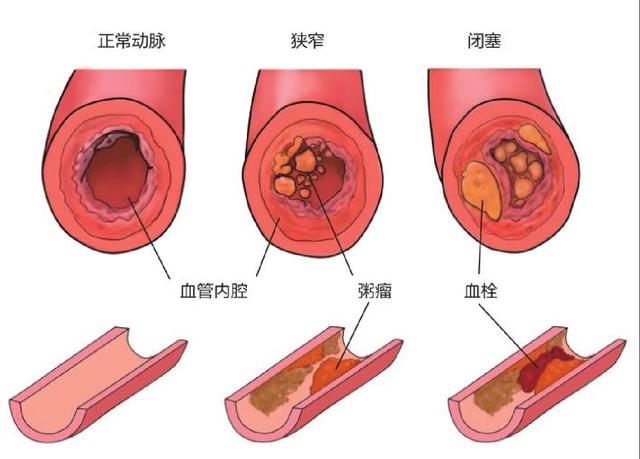
To Prevent Stroke, Focus on Interventable Risk Factors
Risk factors for stroke include non-interventable, interventable risk factors:
- ① Non-interventional risk factors include age, race, gender, and family history;
- ② Intervenable risk factors include hypertension, smoking, diabetes mellitus, atrial fibrillation (AF) and other heart diseases, hyperlipidemia, asymptomatic carotid artery stenosis, obesity, low physical activity, excessive alcohol consumption, hyperhomocysteinemia, hypercoagulable states, and hormone replacement therapy.
1. High blood pressure
High blood pressure is considered the most important risk factor for stroke, and this is true for all stroke subtypes. The higher the blood pressure, the greater the chance of having a stroke or recurrent stroke, and people with high blood pressure have a seven times higher risk of stroke than people without high blood pressure.
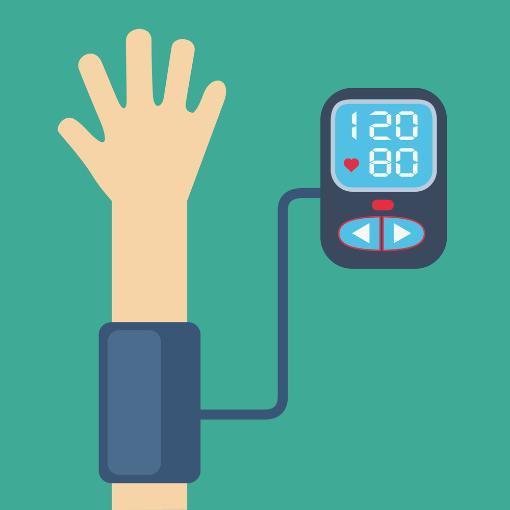
On the one hand, long-term, sustained elevation of blood pressure will cause damage to the endothelium of blood vessels, accelerate and aggravate the speed and degree of development of atherosclerosis, and make it more likely that cerebral infarction (ischemic stroke) will occur; on the other hand, due to atherosclerosis, blood vessel compliance decreases, and when the blood pressure is suddenly elevated, it may result in rupture of blood vessels within the brain to cause cerebral hemorrhage (hemorrhagic stroke).
The current diagnostic criteria for hypertension in China are systolic blood pressure ≥140mmHg and/or diastolic blood pressure ≥90mmHg without anti-hypertensive drugs. ideal blood pressure (<120/80mmHg), normal blood pressure (<130/85mmHg). When blood pressure is located in the high normal range (130-139/85-89 mmHg), it is necessary to be alert to the development of hypertension.
2. Diabetes
Diabetes can accelerate atherosclerosis, and the effects are systemic. Diabetes can more than double the risk of stroke, and about 20% of people with diabetes will eventually die from a stroke. For those with prediabetes, increased fasting blood sugar levels also increase the risk of stroke. People with diabetes have a poorer prognosis for stroke and a higher mortality rate.

Patients with typical symptoms of diabetes (excessive drinking, urination, eating, weight loss), random blood glucose ≥11.1 mmol/L or fasting blood glucose test ≥7.0 mmol/L or 2-hour post glucose load blood glucose ≥11.1 mmol/L. If patients do not have symptoms of diabetes, the test needs to be repeated on a different day to make a definitive diagnosis. Fasting blood glucose needs to be measured after at least 8 hours of no calorie intake, and random blood glucose refers to blood glucose at any time of the day regardless of the time of the last meal.
3. Sleep disorders
About 1/3 of a person's life is spent in sleep, and good sleep helps the body eliminate fatigue, protect the brain, and restore physical strength and energy. Sleep disorders refer to disturbances in the quantity, quality, duration and rhythm of sleep. Patients with sleep disorders are prone to complications of stroke, and the incidence of sleep disorders after stroke is also higher. Stroke-related sleep disorders include obstructive sleep apnea syndrome (OSAS), insomnia and restless legs syndrome (RLS), and current research suggests that OSAS is a risk factor for stroke.
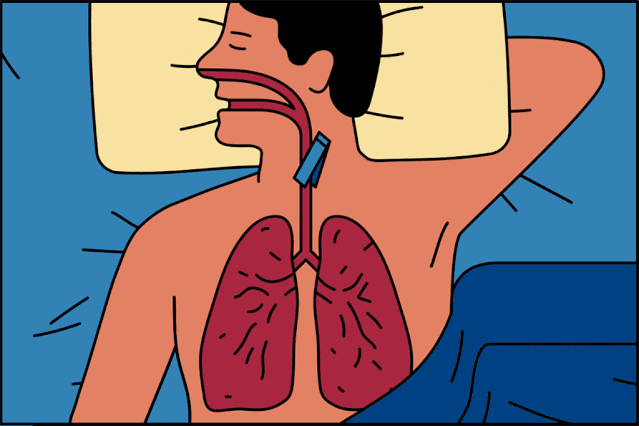
Obstructive sleep apnea syndrome
Obstructive sleep apnea syndrome is defined as 30 or more episodes of apnea or apnea hypopnea index, i.e., an average of ≥5 episodes of apnea and hypoventilation per hour of sleep, with cessation of oral and nasal airflow for 10 seconds or longer during each episode, accompanied by a decrease in oxygen saturation, etc., in an adult during a 7-hour period of sleep each night.The main signs are snoring and daytime sleepiness.Epidemiologic surveys estimate the prevalence to be about 17% to 26% in males and 9% to 28% in females.
4. Metabolic syndrome
Metabolic syndrome is a group of clinical syndromes that seriously affects the health of the body with the aggregated onset of obesity, hyperglycemia (diabetes mellitus or impaired glucose regulation), dyslipidemia, and hypertension, and is a combination of metabolically interrelated risk factors that directly contribute to the development of atherosclerotic cardiovascular and cerebral vascular diseases and increase the risk of type 2 diabetes mellitus, and patients with metabolic syndrome are at high stroke risk. High risk group.
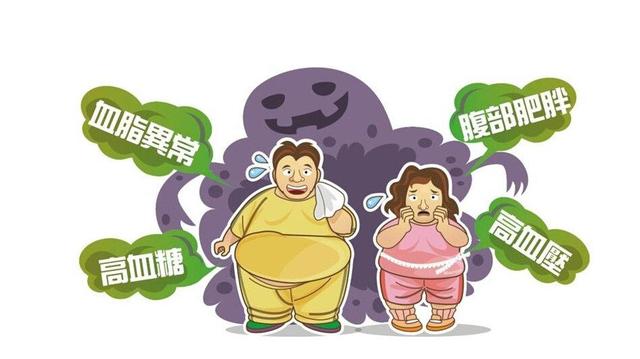
These habits can be changed to effectively reduce the risk of brain infarction
Habits that lead to cerebral infarction are often those that lead to metabolic syndromes such as atherosclerosis, hypertension, etc.; there are also some other aspects of habits that predispose to cerebral infarction.
1. Long-term smoking
Smoking can stimulate the synthesis and secretion of catecholamines in the central nervous system, accelerating the heart rate, increasing blood pressure and platelet aggregation rate; it can increase carbon monoxide in the blood, which can reduce the ability of hemoglobin to carry oxygen, thus causing tissue hypoxia, which leads to damage to the endothelial cells of the vasculature, and the brain tissue has a high degree of sensitivity to hypoxia, and at the same time, carbon monoxide can increase the fibrinogen and the blood viscosity, which can lead to abnormal lipid metabolism and accelerate the occurrence of cerebral atherosclerosis. At the same time, carbon monoxide can also increase fibrinogen and blood viscosity, leading to abnormal lipid metabolism and accelerating the occurrence of cerebral atherosclerosis. Therefore, patients with ischemic stroke or transient ischemic attack (TIA) who have a history of smoking should quit smoking, avoid passive smoking, and stay away from smoking places.
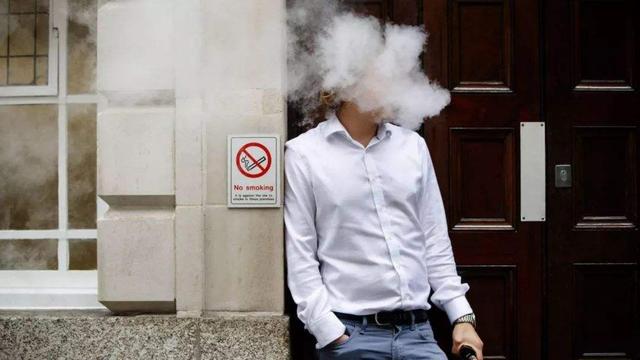
2. Alcoholism
Alcohol, on the other hand, can directly stimulate blood vessels, causing them to lose their elasticity and thus causing cerebral atherosclerosis.
Drink no more than 15 g of alcohol per day for women (15 g of alcohol is equivalent to 450 ml of beer, 150 ml of wine, or 50 ml of low-potency liquor), and no more than 25 g for men. No more than 2 times per week.

3, Constipation
Strenuous effort during constipation will increase intracranial pressure and easily cause brain hemorrhage. May not eat more fiber-rich fruits and vegetables, such as celery, coarse grains, dragon fruit, kiwi; drink more than 2,000 ml of water a day; quit the cell phone, newspaper, concentrate on one thing when defecating; a cup of warm boiled water in the morning every day, to promote intestinal peristalsis, to help develop a regular habit of defecation; long-term constipation, when the symptom is serious, you can choose the drug treatment.
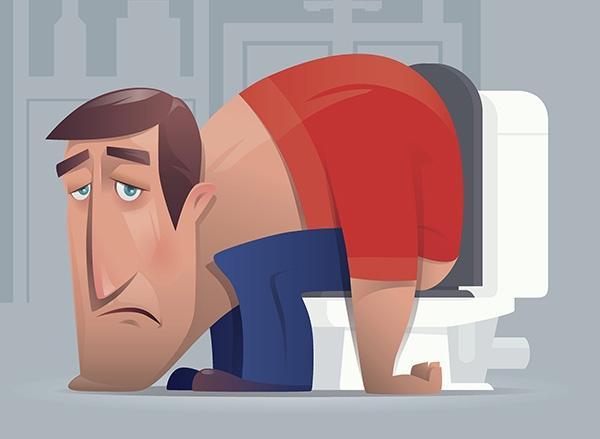
4. Passionate about food, not athletic
Maintaining an ideal body weight, exercising appropriately, and changing the diet to reduce caloric intake not only reduces insulin resistance and hyperinsulinemia, but also improves glucose tolerance and other cardiovascular disease risk factors.

Exercise can be aerobic such as walking, jogging, swimming and cycling.
Modern people are particularly keen on food, which is usually high in oil, calories and salt, and restraint is recommended.
Adults need about 3 to 5g of salt per day, if the intake is too much, it can cause water and sodium retention in the body, increased intravascular pressure, increased resistance, and increased cardiac load, which in time leads to cardiac hypertrophy, heart failure, renal abnormalities, and other pathologies. Low-salt diet is one of the basic treatments for hypertensive patients. In the early stage of hypertension or mild hypertension, simply restricting salt may restore blood pressure to normal. Salt restriction in patients with moderate hypertension is also beneficial, increasing the effectiveness of antihypertensive drugs and reducing the amount of medication. It is recommended that the daily salt intake of hypertensive patients should be less than 5g per person, which not only refers to table salt, but also includes salt-containing seasonings such as monosodium glutamate (MSG) and soy sauce, and salt-containing foods such as ham and pickled products.
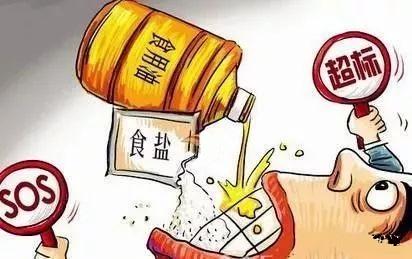
And the intake of fats and oils should be no more than 30% of the total energy in the diet. No more than 10 ml of oil or 1 tablespoon of oil in a regular tablespoon for a dish, and no more than 25 ml or 2.5 tablespoons of oil per person per day.
5、Emotions easy to hurry and anger
Usually when people are emotionally excited, adrenaline secretion increases, which will lead to blood vessel constriction, accelerated heart rate, increased blood pressure, inducing atherosclerotic plaque rupture within the blood vessels, forming blood clots, blocking the cerebral blood vessels, which will lead to the occurrence of cerebral infarction. Therefore, people with high risk of stroke should learn to control their emotions, avoid excessive joy and excitement, minimize participation in stimulating activities, learn self-relaxation and self-regulation, communicate with family members, and maintain a stable state of mind as much as possible.

6、Overly busy, late night, irregular work and rest
Excessive busyness and irregular life often affect sleep and rest. The body's hormone release levels change under fatigue stress, which can stimulate vasoconstriction and trigger strokes.

And staying up late and insomnia increase symptoms of anxiety and depression by causing increased sympathetic excitability and activation of the hypothalamic-pituitary-adrenal axis (HPA), decreasing insulin sensitivity, increasing sympathetic excitability and cortisol levels, and altering inflammatory substances associated with diabetes mellitus, obesity, hypertension, and coronary artery disease, which in turn increases the risk of stroke onset.
Therefore, it is recommended that middle-aged and elderly people should not do anything beyond their physical strength and energy, avoid overwork, and live and live regularly. Develop good sleeping habits, sleep and wake up regularly, avoid excessive mental stimulation before going to bed, avoid over-starvation, avoid over-fullness, avoid the use of drugs, food and drinks that have an effect on the mind. Ensure that the sleeping environment is comfortable, with appropriate temperature and humidity, soft light and no noise.

Sleep Apnea Monitoring
For those who snore like thunder, they can sleep in side-lying position and raise the head of the bed appropriately; sleep apnea monitoring can be carried out in hospitals with conditions. If OSAS is found, etiologic treatment should be carried out; patients with severe sleep apnea can be treated with Continuous Positive Airway Pressure Ventilation (CPAP) and other treatments.
7. It's risky to miss an occasional dose and not say it's okay!
Some older people due to poor memory, often forget to take medication, think it's okay to miss a dose or two, in fact, this is very dangerous, may induce a stroke. It is recommended to take antihypertensive drugs, hypoglycemic drugs, cardiac drugs and other middle-aged and elderly patients, they are packaged separately, which indicates the date of taking and morning, noon and night to take the specific time of the medication, or the type of daily medication according to the time to write on a piece of paper, pasted in the home as a memorandum of reference in a conspicuous place. Busy patients should prepare three sets of drugs, office, home, handbag each set, at any time to remind themselves to take their own medicine.
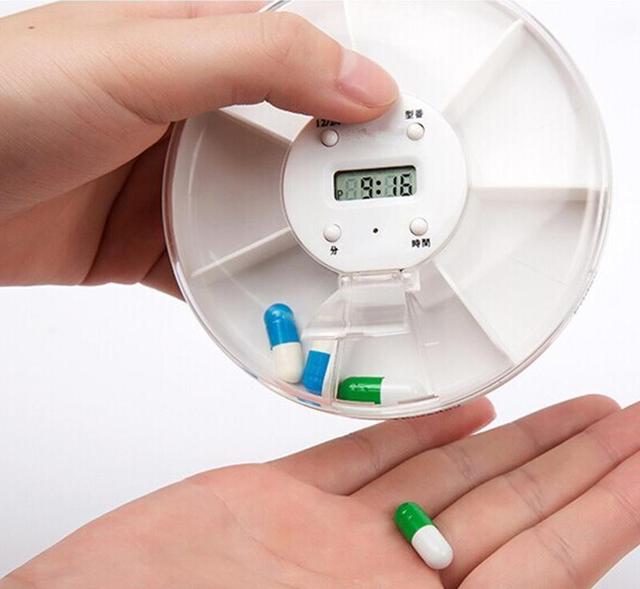
summarize
As the ancient saying goes: "Do not treat the disease before the disease", emphasizing the prevention of the disease before it occurs, the prevention of changes in the existing disease, and the prevention of recurrence of the disease after healing. It is the social responsibility of every medical practitioner to disseminate knowledge of medical science, promote public health, and draw more attention from the society. There are many invisible relationships between cerebral infarction and bad habits, I hope that after reading my popularization of cerebral infarction, you can have a new understanding of cerebral infarction and pay attention to it.
I am Dr. Qiao Fang from the Department of Rheumatology and Immunology, formerly a general practitioner at Sichuan Provincial People's Hospital. It is not easy to organize and publish! If you think it is helpful to read, please help point a concern or point a praise; if you have a different point of view, you are also welcome to leave a message below, we can discuss together; you can also be transferred to your side of the need for friends; thank you!

Cerebral infarction means that the arteries in the brain are blocked, the brain does not get enough oxygen and energy, and a part of the area of the brain dies. Cardiovascular and cerebrovascular disease is the highest mortality rate in our country, and the sequelae of cerebral infarction left behind by untimely treatment will bring serious harm to the society and the family. I think no one wants to get a cerebral infarction, so in order to prevent cerebral infarction, what habits must be changed in life?

First of all, how does a brain attack form?
- There are two main forms of cerebral infarction formation, in which the main cause is the formation of atherosclerotic plaques in the brain arteries under the action of various risk factors such as high blood pressure and diabetes mellitus, and the rupture of plaques to form blood clots to block the blood vessels leads to cerebral infarction.
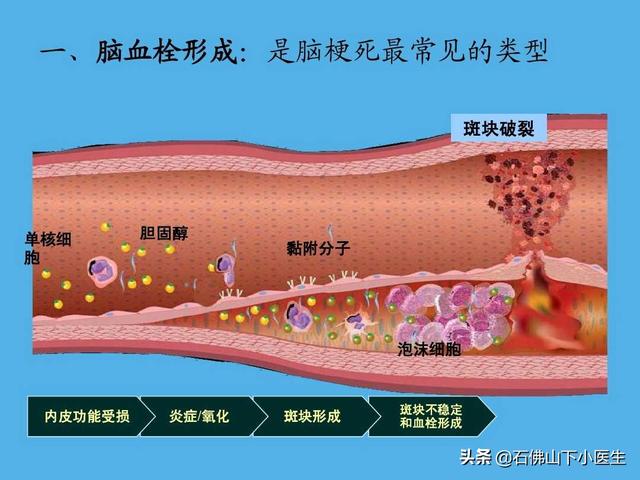
- Another original cause is the dislodgement of a blood clot from another part of the body that reaches the cerebral arteries with the blood flow and causes a blockage, and the cerebral infarction caused by this condition is often more serious. The most common sources of blood clots are from the heart, such as theAtrial fibrillation, infective endocarditis, appendage thrombosis of the ventricles, etc.etc.
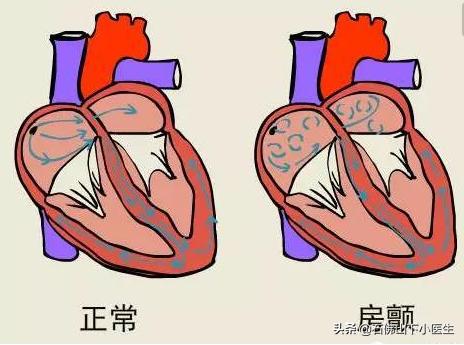
Secondly, what are the bad habits that need to be changed in order to prevent cerebral infarction.
Atherosclerosis generally begins to form around the age of 40, and the speed of formation accelerates after the age of 49. In recent years, China's cardiovascular and cerebrovascular disease incidence age have a younger trend, therefore, the prevention of cerebral infarction before it is too late, can not wait until the age of 50 years old, only to think of prevention. Of course, can think of prevention, certainly than 50 years old, still do not know the prevention of cerebral infarction is better.
I. Smoking cessation
- Although there are a lot of harms of smoking and it is written on the cigarette box that smoking is harmful to health, but these still can't stop people from smoking. On the one hand, the wrong understanding of the harms of smoking, they think that there are smokers who live to more than 90, and non-smokers also have lung cancer at a very young age, this understanding is incorrect, for example, we say that smokers get lung cancer 10 times more often than normal people, not that a smoker will have lung cancer, but a higher likelihood of getting lung cancer. On the other hand, smokers are addicted to nicotine and it is difficult and painful to quit. The success rate of quitting smoking on your own is less than 5%.

- So, what is the danger of smoking to brain infarction? First of all, smoking smoke contains a lot of toxic substances inside, these things will damage the endothelium of blood vessels and promote the production of atherosclerosis. Secondly, smoking will lead to the destabilization of atherosclerotic plaques, and when the plaques rupture, cerebral infarction will be formed.
II. Avoid prolonged and heavy drinking
Drinking alcohol is also bad for your health. There was once a view that drinking small amounts of alcohol helped the health of blood vessels, but this view is not based on science, and the latest research in China this year has shown that drinking alcohol is harmful no matter how much it is.
The damage to blood vessels caused by heavy alcohol consumption is primarily seen in the increase in blood pressure that results. Limiting alcohol consumption can lower blood pressure, and for hypertensive patients, reducing alcohol intake by 67% can lower systolic blood pressure by 3 mmHg and diastolic blood pressure by 2 mmHg.
III. Dietary aspects
1. To avoid consuming too much salt
- Chinese people have always had heavy tastes, and according to statistics, the daily salt intake of Chinese people is around 10.5 grams, much higher than the recommended dose of 6 grams. Most Chinese people are salt-sensitive, and excessive salt intake is one of the important risk factors for hypertension in China.
- In addition, some foods with high salt content should be avoided as much as possible, such as salted fish, ham, pickles, salted vegetables and so on. Also some condiments, such as soy sauce and MSG should be used sparingly.
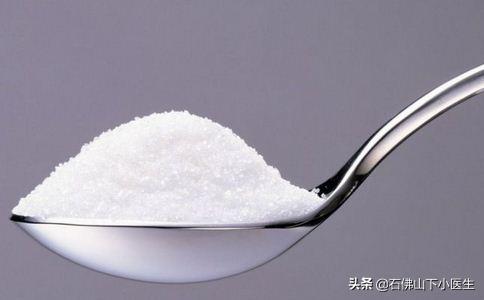
2. Avoid a high-fat, high-cholesterol diet
- At the age of 50, it is important to eat a light diet and not to consume too much high-fat, high-cholesterol food. Egg yolks, for example, may be better to eat every other day.
- Hyperlipidemia is the most significant cause of atherosclerosis formation, and by feeding rats a high-fat diet, the rats will soon develop an atherogenic diet. Therefore, as a human diet should also be careful.
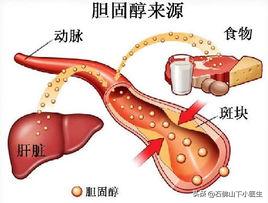
3. Eat more fresh vegetables and fruits
- Fresh vegetables and fruits are beneficial to human health, rich in potassium, potassium intake is conducive to lowering blood pressure, and vegetables and fruits contain some vitamins necessary for the human body fiber content is also relatively high, eat more is conducive to smooth stools, constipation is a prone to the elderly induced heart attack and cerebral infarction triggering factors.
IV. Lifestyle
1. Avoid irregular work and rest
- Insomnia, irregular work and rest, and staying up late are all factors that contribute to poor blood pressure control, so they all need to be corrected. For insomnia, it is recommended to take sleeping pills, for staying up late, try to organize your work and rest time, and for irregular work and rest, it is best to go to bed at about the same time every night.

2. Avoid being sedentary and not exercising
- Life is all about exercise. Staying at home for long periods of time is not good for your health, and proper exercise is good for your body and mind. Exercise not only helps lower blood pressure, but also improves insulin resistance and diabetes.
- In addition, some people have nothing to do after retirement and are prone to rumination. Going out for exercise and meeting some friends is good for mental health.

Fifth, not much care for health
- There are a lot of such people, there is a disease to endure a simmering over. In the hospital, often come across such patients. You go to ask the patient's situation, the family will say that he used to be in good health, never go to the hospital, do not take medication, this time how to be so sick.
- Why are you so sick? What could be the reason. Never go to the hospital, no physical examination. Some chronic diseases can not be found, chronic diseases such as high blood pressure usually have no symptoms, and complications often take years. Therefore, the body is not uncomfortable, does not mean that the body is not sick. In my opinion, over the age of 40, if the family is still in good condition, you should have a physical examination once a year.
- There are also some people who know that they have chronic diseases but do not take their medication properly. For example, those who have high blood pressure and diabetes do not take their medication properly, do not control their diets and improve their lifestyles, and think that if they do not have symptoms, it does not matter, and these are all major health taboos.

I'm Dr. Chen from Daily Science, and your likes and follows are my motivation to keep creating.
May Day vacation, the last day, when I went to check in the morning, I passed by the emergency room and met them still resuscitating.
A 48 middle-aged male with sudden left-sided body hemiparesis and aphasia was brought to the emergency room by 120. A CT was done suggesting massive cerebral infarction, and after the patient entered the catheterization room, it appeared as if his daughter had been crying.
Family members asked: usually no signs, why suddenly have a stroke?
Later asked in detail learned that the patient Mr. Huang, 48 years old, long-term smoking, drinking, weight is also overweight, eating without diet, never exercise habits; there is no three high don't know, because not checkups.
On admission, the patient had a blood pressure of 190/110 mmHg, random blood glucose of 13.7 mmol/L, lipid cholesterol of 7.5, and LDL of 5.3 mmol/L. He was a typical triple high.
The family said there were no signs, so why did he have a brain attack?
I'd say it's possible to not have a brain attack when so many signs aren't brought to the attention of the family and the patient.
Cerebral infarction is not like myocardial infarction, myocardial infarction often occurs before a burst of angina pectoris prompt, timely to the hospital will not occur cardiovascular blockage, will not be myocardial infarction; but cerebral infarction once the symptoms appear, often has occurred in the cerebral vascular blockage, has occurred cerebral infarction.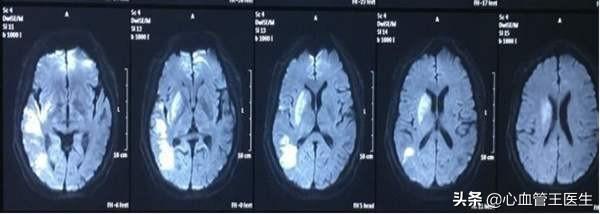
We have a higher number of strokes than cardiovascular numbers, a ratio that is not quite the same as in other countries, which are predominantly cardiovascular. In recent years the incidence of cerebral infarction has been increasing and the age of onset has been decreasing. The youngest cerebral infarction I have ever seen was under 20 years of age, and of course there are younger cerebral infarctions reported in the literature.
Cerebral infarction is the cerebral blood vessels are blocked because of blood clots, the cerebral blood vessels do not have blood flow, brain cell death will occur; brain cells are not regenerative, with the death of brain cells, the original work of the brain tissue is to command the human body; when a cerebral infarction, these cells are necrotic and can not work properly, so they can not command the person to move, talk, walk and so on.
The main causes of cerebrovascular thrombosis can simply be divided into two, one is atherosclerosis-related plaque rupture, the formation of blood clots, blocking the cerebral blood vessels. The other is other blood clots blocked in the cerebral blood vessels, the most common is the heart arrhythmia caused by atrial fibrillation, atrial fibrillation caused by blood clots, blood clots dislodged to the cerebral blood vessels after running into the cerebral infarction will occur.
To prevent cerebral infarction is really about preventing atherosclerosis, and preventing blood clots from atrial fibrillation.
Why did I say that Mr. Wong usually has a lot of factors that lead to cerebral infarction?
1, three high to check to control
Never checking the body, never bothering to monitor the three highs, hypertension, diabetes, and hyperlipidemia, are the most common causes of cerebral infarction; and it is in the section of controllable causes, all three of which account for a large proportion. Simply put, if hypertension or diabetes mellitus or hyperlipidemia occurs; or 2 of them, or all 3, then if left unchecked, the lining of the blood vessels suffers severe damage, exacerbating atherosclerosis and exacerbating plaque. Once the plaque ruptures, a blood clot will form, blocking the cerebral blood vessels and causing cerebral infarction. This Mr. Huang, never check his body, because he felt no discomfort; but three high is not at all by feeling can feel, blood pressure, blood sugar, blood lipids only to test to know whether there is a three high, rather than follow the feeling, the feeling is often an illusion.
2、Unhealthy lifestyle is the root cause of the formation and aggravation of atherosclerosis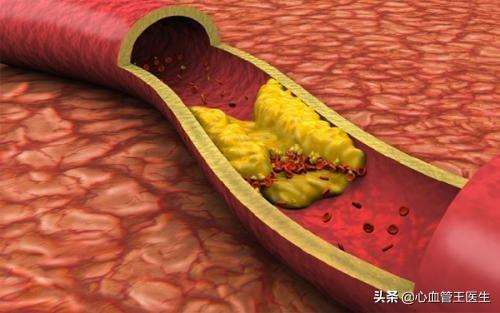
In addition to the three highs, which will aggravate atherosclerosis, our advanced age, gender, and heredity will also affect the proportion of cerebral infarction; however, these are all things that we can't choose artificially, and they don't account for a large proportion. The key to our long-term smoking, alcoholism, sedentary without exercise, obesity, unhealthy diet, late night stress and so on these unhealthy habits will accelerate the aggravation of atherosclerosis, thereby aggravating plaque, family plaque rupture to form a thrombus, resulting in cerebral infarction.
Smokers have 3.7 times more strokes than non-smokers;
Chronic drinking, especially alcohol abuse, significantly increases the risk of stroke;
Sedentary inactivity is almost as harmful as smoking and diabetes, significantly increasing the atherosclerotic process;
Obesity not only leads to a higher incidence of the three highs, but also to an increased risk of stroke;
Our living standard is so-called improved, but high oil, high salt and high sugar diet, at the same time the proportion of fruits and vegetables is not enough, and the proportion of coarse grains and miscellaneous grains is not enough; such a dietary structure will aggravate atherosclerosis;
Modern people, especially middle-aged people are under great pressure, heavy burden, active passive stay up late to work overtime and other results, will also accelerate the formation of atherosclerosis.
This Mr. Huang, smoking, drinking, obesity, physical inactivity, unhealthy diet all these risk factors account for all.
So when the family said, Mr. Huang usually did not have any discomfort, how did he suddenly have a cerebral infarction? I want to say: he has high blood pressure, diabetes, high blood fat, smoking, drinking, sedentary, obesity, unhealthy diet, etc., etc., etc., almost accounted for all the risk of cerebral infarction, you say he is suddenly cerebral infarction? Of course not, long-term these habits, cardiovascular and cerebrovascular problems, it is a matter of time.
Therefore, to prevent cerebral infarction, we must first develop a healthy lifestyle and change the unhealthy lifestyle. While you are young, the sooner the better: stay away from smoking and alcohol, control your weight, eat a healthy diet, insist on exercise, reduce late nights, remove stress, routine checkups, monitor blood pressure, blood sugar, blood lipids, and if you have three highs, you must actively control them. This can truly prevent cerebral infarction.
For people with severe atherosclerosis, especially unstable plaque in the carotid arteries, it is important to take aspirin and statin under the supervision of a doctor so that plaque rupture can be prevented, blood clots can be prevented, and cerebral infarction can be prevented.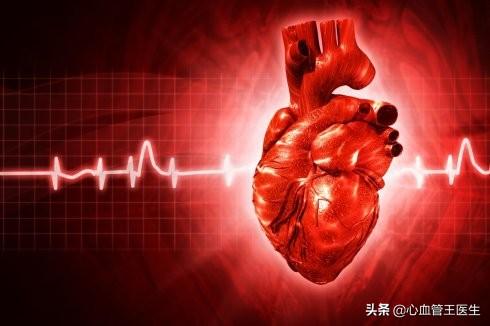
As we started to say, there are two simple types of brain infarctions, one is atherosclerosis and the other is a heart attack, which is a blood clot caused by atrial fibrillation, which leads to a brain infarction.
To prevent this kind of cerebral infarction is to prevent atrial fibrillation, or to treat atrial fibrillation formally when it occurs. There are many causes of atrial fibrillation, and currently we have common causes such as hypertension, coronary artery disease, rheumatic heart disease, pulmonary heart disease, heart failure, hyperthyroidism, idiopathic atrial fibrillation, and so on. The diagnosis is easily made by ECG; in particular, controlling hypertension is important and most feasible for the prevention of atrial fibrillation.
For people who develop atrial fibrillation must be under the guidance of a specialist, or anticoagulation or conversion to cardiac rhythm, or surgery, in short, one purpose is to prevent blood clots, to prevent the formation of blood clots, to prevent blood clots from falling off, so that cerebral infarction can be prevented.
In conclusion, to prevent cerebral infarction, especially for middle-aged people, you must start with your own unhealthy habits first and change your unhealthy habits. Don't be like Mr. Huang, who always feels that he is fine, how suddenly he has a brain attack. In fact, before the cerebral infarction, the occurrence of numerous warnings, but many people simply do not care.
Because we are all good at getting over the pain, not to mention, we didn't have scars before the brain attack, so who cares about the pain?
Mr. Huang is now lying in the custody room, still can not move, can not speak, the family is waiting quietly outside the custody room ......
This is a very good question! Last year, one of my classmates, a sudden brain attack, and then rescued in time, after more than a year of recovery treatment, activities have been significantly limited, the class is not able to go to work, the only daughter, can only come back from Germany to take care of him.
In China, cerebral infarction is one of the most common cerebrovascular diseases, in all acute cerebrovascular disease, it accounted for seventy percent, and to the middle-aged and elderly patients, the incidence of men and women are not divided, and there is a trend of low age.
So, what are the causes of brain attacks? What are the bad habits that can trigger the risk of a brain attack? What are the good habits that will allow us to reduce the chances of having a brain attack?

Atherosclerosis is a central cause of cerebral infarction
Cerebral infarction is the common name for cerebral infarction, also known clinically as ischemic stroke, which occurs most directly as a result of impaired blood circulation in the brain, causing ischemia, hypoxia, and ultimately ischemic necrosis, or softening of limited brain tissue.
The most fundamental pathologic change in cerebral infarction is atherosclerosis of the large arteries in the skull and neck. There are many clinical causes of cerebral infarction, but basically, atherosclerosis of the large arteries, cardiogenic embolism, and occlusion of the small arteries are regarded as the most important causes of cerebral infarction at the present time.
Because atherosclerosis of large arteries can directly lead to thrombosis and arterial embolism, which is the most important pathogenesis of cerebral infarction; and hypertension and diabetes mellitus are high risk factors for small artery occlusion.

What Bad Habits Lead to Atherosclerosis?
In summary, aortic atherosclerosis is an important risk factor for brain infarction, and atherosclerosis is not formed in a day, it has to go through a slow process of development, in which the bad lifestyle will greatly accelerate the process of atherosclerosis, then, what bad lifestyle, or bad habits will lead to the formation of atherosclerosis? Summarize and summarize, the following 6 big bad habits should be quit:
1. Diet is fat, sweet, thick and greasy, high salt and fat, spicy and stimulating;
2. Liking meat and disliking vegetarian, insufficient intake of vegetables and fruits;
3. Smoking and drinking, addicted to barbecue and fried food;
4. Work and rest disorders, irregularity, staying up late and not getting enough sleep;
5. Not love sports, obese and overweight;
6. Poor control of blood pressure, blood glucose, and blood lipids.

What good habits will keep atherosclerosis away?
It is clinically recognized that early intervention, especially lifestyle intervention, can slow down and stop the process of atherosclerosis, and there is even the possibility of mild reversal of atherosclerotic plaques, so a good lifestyle, or good habits, is the basis for staying away from atherosclerosis.
So what exactly are these good habits? Summarized and summarized, there are the following 7 major good habits:
1. Healthy diet, balanced meals: low salt and low fat, coarse and fine combinations, eat more fruits and vegetables and dietary fiber, quit smoking and limit alcohol;
2. Control weight and keep away from obesity: control food calories, reduce saturated fatty acid, cholesterol and sugar intake;
3. Control risk factors: control blood pressure, blood glucose, and blood lipids to reasonable levels;
4. Adhere to regular exercise: 30-45 minutes of moderate-intensity exercise 4-5 days a week;
5. Regular work and rest, refuse to stay up late: work and rest, sleep enough;
6. Optimistic and relaxed: Avoid emotional excitement, stay optimistic and relaxed;
7. Regular checkups for prevention: such as regular carotid ultrasound, electrocardiogram, etc., pay attention to observing symptoms such as dizziness, headache, chest tightness, chest pain, abdominal pain, abdominal distension, and pain in the lower limbs.
Summarize: the core cause of cerebral infarction is atherosclerosis of large arteries; to stay away from cerebral infarction, we should quit 6 bad habits and develop 7 good habits.
Do you agree with me?
Daily update on health hotspots, medical pain points; if what I say, is exactly what you think, then please like, retweet, follow Zhu Xiaojun said health!
As we all know, the danger of cerebral infarction is not only damaging to the brain and affecting the movement of our limbs, but also dealing a great blow to our quality of life in the future, especially to middle-aged and elderly people over 50 years of age. There are quite a number of people around me who have suffered from cerebral infarction, thus rendering them unable to take care of themselves and needing the care of their family members at all times. In this regard, cerebral infarction does not affect one person, but in serious cases, it can cause pain to the whole family.
As the standard of living improves, most of us are attaching more and more importance to our health. When we look at our friends around us, one by one, because of cerebral infarction activity inconvenience, also began to gradually change their habits and ways of life, in order to prevent the occurrence of cerebral infarction. However, in reality, there are still a lot of people who do not think that brain attack is far away from us, or even will not happen at all. In any case, in today's article, I would like to talk about the topic of cerebral infarction with you in detail.
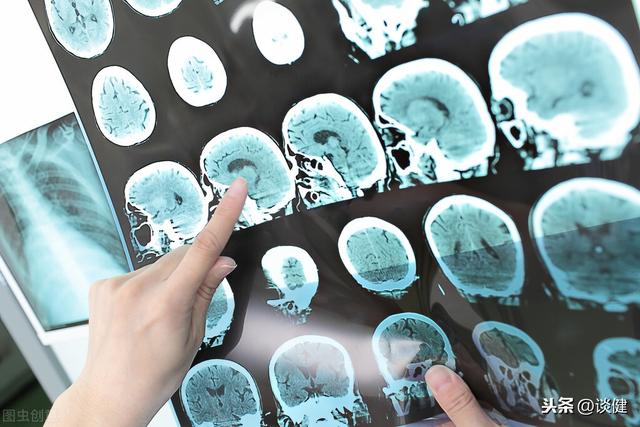
What is a cerebral infarction?
A cerebral infarction, also known as a cerebral thrombosis or thrombotic stroke, is classified as being an ischemic stroke.Our human brain, like a computer, is made up of a variety of parts, of which the various circuits in the computer are equivalent to the various arteries of the brain.When a blood clot is present in the arteries of the human brain, it causes the blood vessels to narrow. At this point, the clots block the flow of oxygen-rich blood to an area of the brain, which can cause long-term brain damage. In fact, to put it bluntly.A cerebral infarction is a temporary or permanent brain injury that occurs due to a lack of adequate blood supply to an area of the brain.
We can classify brain infarcts into two categories based on the size of the obstructed area in the brain, namelythrombosis of a large vessel和thrombosis of a small vessel. Large-vessel cerebral infarcts occur in the larger blood-supplying arteries of the brain, such as thecarotid artery (medicine)或middle cerebral artery.. Typically, a large vessel thrombotic stroke can lead to serious symptoms and long-term effects such asaphasia or aphemia (loss of language)或偏瘫etc.
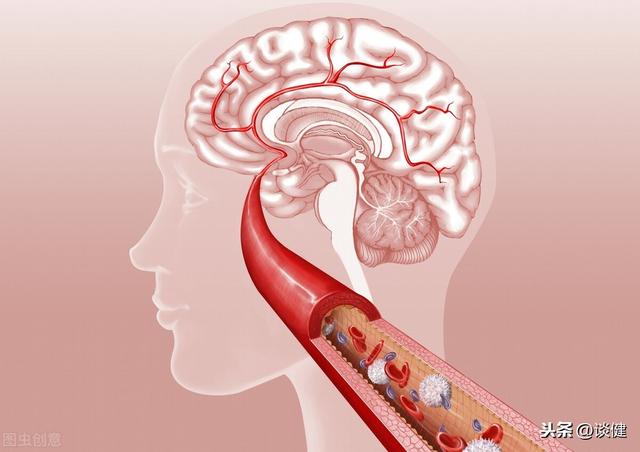
A small vessel cerebral infarction occurs when blood flow is blocked in the small and deep arteries of the brain. In fact, most of these infarctions are what we often refer to as lacunar cerebral infarction. Compared with large vessel infarction, small vessel infarction is very harmful and only affects a limited area of the brain. However, if the small vessel infarction occurs in an important area of the brain, such as the area of the brain that is responsible for important and obvious physical functions or cognitive abilities, then serious impairment can occur.
As mentioned above, cerebral infarction will have different symptoms and effects depending on the location of the infarction. When we suddenly have difficulty in speaking or speaking in unintelligible language, or when we have weakness and numbness in half of our body, or in severe cases, we may even have blurred vision, severe headache, and cannot even walk basically, we should pay attention to the occurrence of cerebral infarction. If we consult the doctor in time, we can minimize the after-effects to a great extent, and the chance of recovery will be greatly improved.
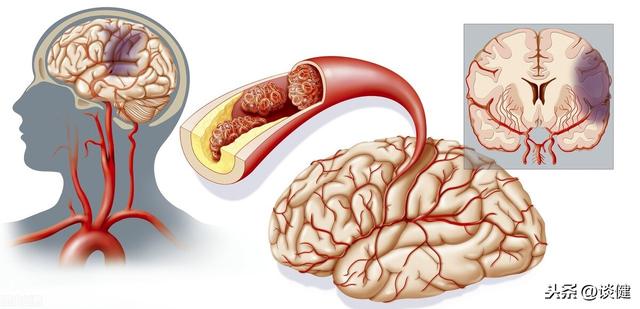
What are the causes of cerebral infarction?
In the clinical setting, cerebral infarction is most commonly caused byhippocampus或carotid stenosisThe cause of the problem is atherosclerosis. In most cases, the "cause" of narrowing of the brain or carotid arteries is atherosclerosis. Atherosclerosis is simply the deposition of a layer of blood on the walls of the arteries.Lipids like millet porridgeWe think about it carefully. If we think about it, the diameter of our arteries never changes. Once lipid deposits are deposited, the elasticity of the arteries decreases and the lumen narrows, which inevitably affects the flow of blood through the arteries as well. In fact, most lipid deposits are the result of elevated LDL cholesterol, which is one of the most important causes.
Persistent high blood pressure can also narrow blood vessels, leading to thrombotic stroke. In fact, hypertension and atherosclerosis are often co-occurring diseases in clinical practice. As a result, this can further damage our arterial vessels. Diabetes narrows both large and small blood vessels, leading to thrombosis and cerebral infarction, especially when blood sugar levels are not effectively controlled.
Smoking is harmful to our body and is one of the main risk factors for brain attacks and heart disease. This is because it damages the blood vessels throughout the body. In addition, there is another not so common cause, which is trauma to the blood vessels in the neck. In some cases, severe trauma can lead to the formation of blood clots, resulting in a brain attack.
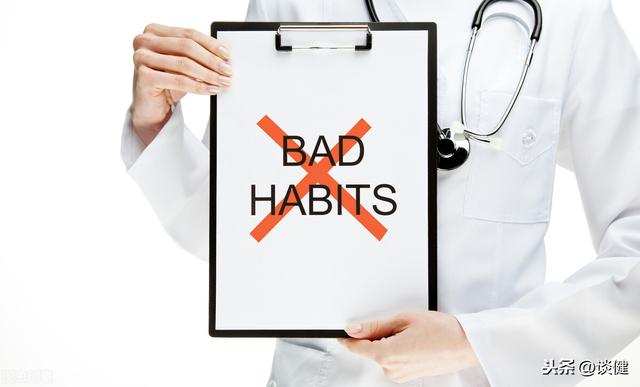
What are the best habits to change when you are over 50 and don't want a brain attack?
Most brain attacks cause us distress, even if they are transient ischemic attacks. Whether it is from our own considerations or from the whole family, the prevention of brain attacks is something that each one of us should take seriously, especially if we are over the threshold of 50 years old, we should pay attention to it all the time. In my opinion, to prevent cerebral infarction we must change the following bad habits:
The first and foremost thing to do is to quit smoking. Much has perhaps been said on the subject of quitting smoking. Although many people are aware of its harm, but it is difficult to quit. In fact, in the final analysis, it is still a matter of our mindset. Once our mindset is correct and we are determined to quit smoking, I believe that quitting smoking is not a problem. After all, the great Chairman Mao once said: "The world is afraid of the word serious."

Secondly, change the fault of ignoring high blood pressure. Around me, there are many hypertensive patients who never pay much attention to their blood pressure, they always think that high blood pressure is not harmful, so they neither dietary control, especially pay attention to sodium intake, nor enhance exercise. In fact, the danger of high blood pressure is far more serious than we think, it is recommended that everyone should pay attention to their blood pressure, especially hypertensive patients, it is recommended to control their blood pressure below 130/80mmHg.
Thirdly, change the dietary habits of high fat, high cholesterol and high sugar, especially those who are themselves suffering from hypercholesterolemia, high blood fat and high blood sugar. Eat a well-balanced diet with a focus on healthy foods. It is very important to keep LDL cholesterol below 2.6mmol/L as recommended for healthy people. For people with diabetes, they should follow medical advice and keep their blood glucose strictly within the target range.
Fourth, change the sedentary lifestyle. In the existing living environment, every one of us is facing great work pressure. No matter what, we should be in line with the principle of health first, after work should also strengthen the movement, do not sit for a whole day. It is recommended to exercise for more than 90 minutes a week, even a simple walk or climbing stairs is good, it does not necessarily have to go to the gym.

Conclusion:
Changing your bad habits is the key to preventing brain attacks. This is because most of the attacks of brain infarction are closely related to our bad habits. Unfortunately, there are many brain attack patients who do not know much about brain attack, and they do not regret until they or their family members are diagnosed with brain attack. In fact, when we always pay attention to our blood pressure, blood sugar and blood lipids, and under the guidance of doctors, control them one by one in the target range, we can reduce the occurrence of brain infarction to a large extent. In the face of disease, never hold a fluke mentality, only pay attention to it, in order to overcome it.
After the age of 50, most people's physical function will have a more obvious decline, a variety of diseases are also more likely to invade the body, and cardiovascular disease is a very common type of disease, which, cerebral infarction belongs to a very high incidence of a disease, so for the crowd after 50 years of age, want to do not suffer from cerebral infarction, then actively change the bad habits, do a good job of preventing is very important.
One of my uncles suffered a sudden cerebral infarction when he was 55 years old, resulting in severe hemiplegia. The quality of his life is now very poor, and he is unable to take care of himself and needs to be taken care of, and it is very difficult for him to run to the hospital from time to time.
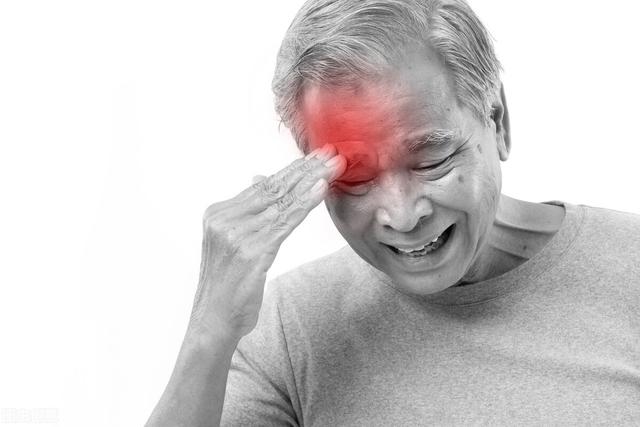
So what factors are at high risk for triggering a cerebral infarction after the age of 50?
The first thing I'd like to tell you ishyperlipidemiaThis disease.Hyperlipidemia is the most common cause of atherosclerosis, and atherosclerosis is the most common cause of cerebral infarction, so hyperlipidemia indirectly induces cerebral infarction and is a very high risk factor for cerebral infarction.For people with high blood lipids, their blood has a higher fat content and is more viscous. For people with high blood lipids, their blood has a higher fat content, the blood is also more viscous, the arterial walls harden very quickly, and after arteriosclerosis, the walls are also more likely to form blood clots, these clots, if dislodged, with the flow of blood into the intracranial blood vessels, resulting in intracranial blood vessel clogging, which will lead to the occurrence of a more pronounced ischemia of the brain tissue, the brain tissue ischemia will necrosis, and this time is manifested in cerebral infarction. The brain tissue will be necrotic after ischemia, which is manifested as cerebral infarction at this time.
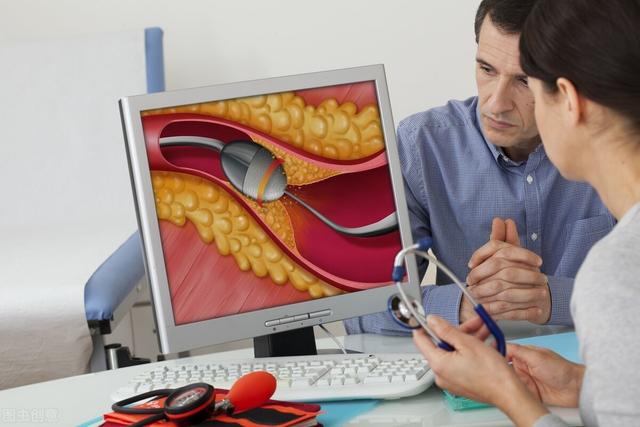
Also.Hypertension is also a high risk factor for cerebral infarctionMany people know that high blood pressure is very likely to lead to cerebral hemorrhage, and in fact, it is also very common for high blood pressure to lead to cerebral infarction. A large number of research data show that if a patient has high blood pressure, then his chance of having a cerebral infarction is at least five times higher than that of an ordinary healthy person, mainly because of the long-term elevation of blood pressure will lead to greater pressure on blood vessels, resulting in varying degrees of damage to the inner lining of the blood vessel wall, especially for some small arteries in the cranium, they will become very hard, and the flow of blood will be impeded to a certain extent, which will lead to insufficient blood supply to the brain, resulting in the occurrence of cerebral infarction. Insufficient blood supply to the brain, resulting in the occurrence of cerebral infarction.

Sure.Heart disease can also trigger cerebral infarction. Why? Because some heart disease is very easy to occur attached wall thrombus, and attached wall thrombus if dislodged, it is easy to enter the skull with the blood circulation, and then cerebral infarction, such as atrial fibrillation patients, is a high risk factor for cerebral infarction, because atrial fibrillation is very easy to induce the formation of attached wall thrombus.
as forPeople who are more likely to smokeFor example, if people after the age of 50 still smoke heavily for a long period of time, the risk of having a cerebral infarction will be significantly higher. If they can quit smoking in time, the risk of cerebral infarction will gradually decrease, and after a few years, they are basically more or less the same as normal people. In fact, the main reason for this phenomenon is that smoking is more likely to lead to some damage to the inner lining of the arteries, and at the same time, it is also easy to stimulate the arteries to spasm, especially for the small arteries in the skull, the impact is very obvious.

Another factor that should not be overlooked is theSpiritual impact.This factor should not be underestimated, mental stress is also easy to induce cerebral infarction, especially those who often stay up late crowd, mental stress coupled with staying up late.It can lead to a more pronounced decrease in both the body's resistance and immunityThe risk of cerebral infarction is significantly higher, especially after the age of 50, if you are still often stressed and stay up late.
And one last thing.diabetes.. Many people think that diabetes and cerebrovascular disease are very far apart. However, if diabetic patients with long-term poor glycemic control, it can lead to many complications, including damage to blood vessels, leading to platelet aggregation, inducing thrombosis, which in turn increases the risk of cerebral infarction.

Once you know the high risk factors for cerebral infarction, let's talk about which habits are best to change?
To reduce the risk of cerebral infarction, we need to reduce its high-risk factors, so for those who will lead to the emergence of cerebral infarction high-risk factors of bad habits, Dr. Liu suggested that it is best to change as soon as possible.
The first thing is that bad dietary habits need to be changed.
The presence of bad dietary habits is a significant increase in the occurrence of hypertension and hyperlipidemia, which can indirectly induce cerebral infarction. For exampleFrequent overeating, always love to eat fatty meat, love to eat spicy and stimulating food, love to eat pickled food, love to eat heavy food, these are risk factors for the development of high blood pressure and high blood cholesterol, so for these bad habits, theYou must change before it's too late.。 In the diet, try to light mainly, at the same time in the cooking method, you can use more steam, boil, stew and other methods, less stir-frying, baking and other methods; at the same time, eat more food rich in dietary fiber, eat more fresh vegetables and fruits, for meat, to eat in moderation, for the fish, low-fat meat, can be appropriate to eat more. And in the salt intake, must pay attention to control the amount, in principle, the daily intake of salt is best not more than 5g.

The next step is to break the bad habit of smoking and drinking.
Above told you that smoking will induce changes in blood vessels, resulting in blood vessel damage, which in turn leads to the occurrence of cerebral infarction, so for the smoke, after 50 years old must quit, it is too much harm, almost on the whole body of each organ is harmful. For alcohol, it is recommended to reduce the intake of occasional intake is not a big impact, but if you often drink a lot of alcohol, for our cerebral blood vessels is very great, which is very easy to lead to the occurrence of cerebral infarction. Therefore, forSmoking and drinking are bad habits that you should try to break sooner rather than later.

Once again it is necessary to change bad habits.
Bad habits can be very harmful to people after the age of 50. For exampleStay up all night., which is very influential, so it must be changed; also, things like theStress, overstimulation, always in a bad mood - bad habits!, it is also advisable to change in time is good. These bad habits for our intracranial blood vessels are more harmful. It is recommended to develop good sleeping habits, avoid excessive stress, relax yourself from time to time, maintain a happy mood, etc., so that you have a good state of mind, which will make our blood vessels more healthy.

Finally, it's the bad habit of not exercising that needs to be broken.
Life is about exercise, and exercise is very important for a person. after the age of 50, if theLong-term inactivity is very likely to lead to high blood pressure, high blood fat. Therefore, it is very important to exercise actively and persistently. It is suggested that we can exercise about five times a week for about 30 minutes each time, which will help our cardiovascular and cerebral blood vessels become smoother and avoid atherosclerosis, thus preventing the formation of cerebral infarction. Of course, in the winter when it is cold, exercise is best to choose to do indoors, because if the outdoor temperature is too low, which is more unfavorable to the cerebral blood vessels, so be sure to pay attention to the choice of sports venues.

After understanding the bad habits that need to be changed, Dr. Liu will talk to you about the common symptoms of cerebral infarction.
Early cerebral infarction in fact, there will still be some signs, if you can find out in time, timely medical treatment, for the treatment is still very helpful.
First of all, the body.Weakness, numbness, and loss of mobility on one or both sides of the bodychanges; the second is that some patients may beBlurred vision, loss of vision, or double vision in one or both eyes. There are also the more common manifestations ofhave difficulty speakingFor example, when talking to others, there is a lack of clarity of speech, unintelligible speech, unclear expression of semantics, etc. Some patients may only be able to say half of what they say. Of course.Dizziness and loss of balanceOr a fall without any accident is also a possible manifestation of a cerebral infarction patient.

Therefore, if one or more of the above manifestations occur, then you must be vigilant and go to the hospital in time for treatment or take preventive measures to avoid the occurrence of cerebral infarction.
summarize
After the age of 50, no matter which part of the body, it is very easy to develop various kinds of diseases, so it is very crucial and important to actively do a good job of prevention. As for cerebral infarction, once it occurs, it often seriously affects the quality of life of patients, and many patients will also be left with more serious sequelae, such as hemiplegia, and so on, and even a part of the patients will be life-threatening, therefore, theA comprehensive understanding of the high-risk factors that trigger cerebral infarction and changing all kinds of bad habits in life are very necessary for everyoneWe hope that you can follow some of the advice given by Dr. Liu to actively change your bad habits and do a good job in preventing cerebral infarction, so as to take precautionary measures before it occurs.
First of all, the cerebral infarction of this disease is good at the age of 50 years after the crowd, because mainly the older the atherosclerosis of the chances of the greater, and some people will have some high blood pressure, diabetes, high cholesterol and other diseases will be cerebral infarction, so cerebral infarction of the early feeling of the not too serious, but in fact, this is the invisible killers of the elderly, but the cerebral vascular rupture will lead to death.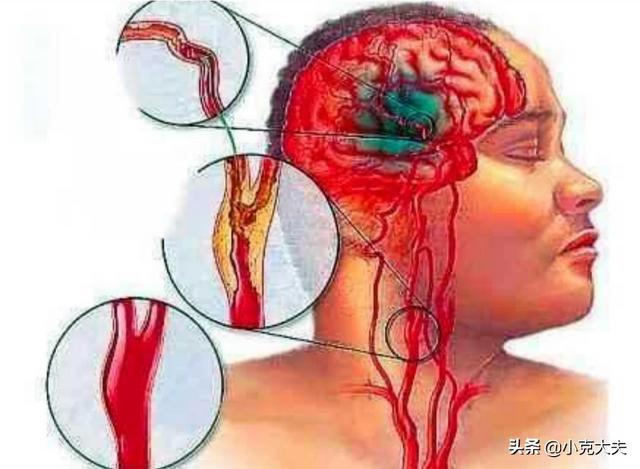
The following Xiao Ke to popularize for everyone do not want to get brain infarction need to change what bad habits?
1, pay attention to diet, because diet is very important for human health, avoid eating some high-fat containing greasy food (fat meat), which will lead to blood viscosity or blood concentration, blood viscosity increases caused by cerebral infarction.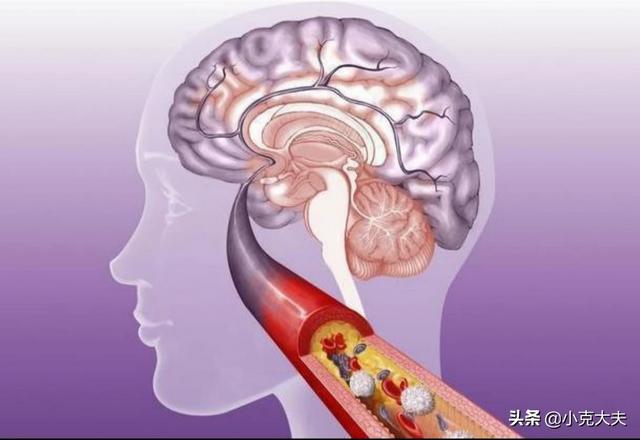
2, pay attention to the treatment of cerebrovascular disease, the main common coronary heart disease, rheumatic heart disease, blood pressure is too high or too low blood pressure of the population, there is obesity, high blood fat, unstable blood glucose control are prone to cause cerebral infarction, so you need to regulate these diseases in a timely manner, to prevent the occurrence of cerebral infarction.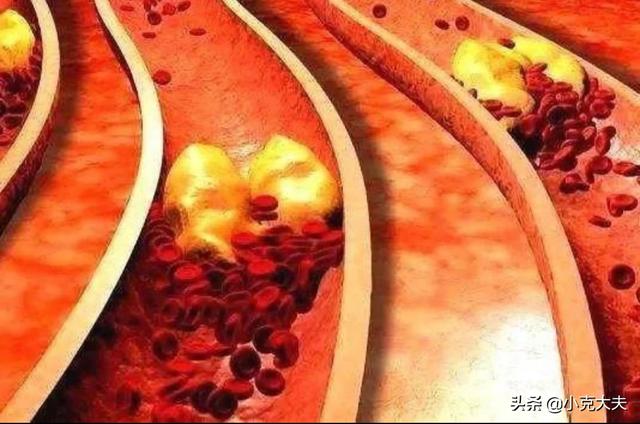
3, avoid drinking and smoking, which is also a risk factor for cerebral infarction, because drinking and smoking will stimulate the endothelial tissue damage of blood vessel wall, resulting in the surface of the blood vessel wall is uneven, the blood lipids in the uneven blood vessel wall is more likely to precipitate aggregation, resulting in the emergence of embolism.
Follow Kirk for more health knowledge, thank you!
The incidence of cerebral infarction is increasing year by year, and there is no lack of cerebral infarction around some of the mobility problems.Patients, and people over 50 years old, is the incidence of cerebral infarction of the high incidence of age, not only, people over 50 years old, cerebral infarction of the incidence of the age of the growth of exponential increase, therefore, the prevention of cerebral infarction occurs, urgently.Cerebral infarction accounts for 94.22% of the incidence of acute cardiovascular disease.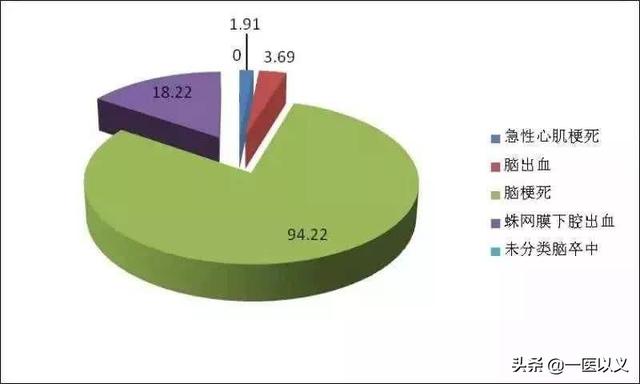
Targeted prevention of cerebral infarction based on the causative factors of cerebral infarction
Hyperlipidemia and hypertension, both factors are the main reason for the formation and aggravation of atherosclerosis, and atherosclerosis is the main cause of cerebral infarction, where the main thing is that the lipids in the blood adhere to and infiltrate the endothelium of the blood vessels, resulting in the destruction and sclerosis of the endothelium of the blood vessels; and hypertension is even more harmful, as the elevated blood pressure acts directly on the cerebral blood vessels, resulting in the denaturation, lipotropy, and damage to the tiny blood vessels of the brain, and forming and aggravate atherosclerosis of arterial endothelium.Moreover, the process of atherosclerosis becomes more severe with age, and as a result, the incidence and severity of cerebral infarction increases.
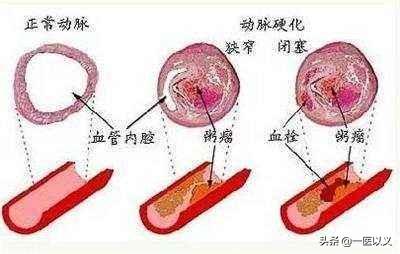
Long-term smoking and alcoholism: Smoking will directly increase the damage to the endothelium of blood vessels and increase the chance of atherosclerosis; epidemiological statistics show that the proportion of long-term smokers in patients with cerebral infarction is much higher than that of the normal population, and with the increase in the frequency and number of cigarettes smoked, the risk of cerebral infarction will also increase. Large amounts of alcohol consumption not only leads to the occurrence of hypertension, but also increases the burden on the liver, resulting in increased risk of hepatic steatosis, which leads to an increase in blood lipids, high blood pressure and high blood lipids so that atherosclerosis, cerebral infarction incidence.

Too salty diet, in fact, these are with the first is the same, we all know, our population hypertension is relatively high, and its main reason is flat is too much salt in the diet, and thus increase the incidence of cerebral infarction.
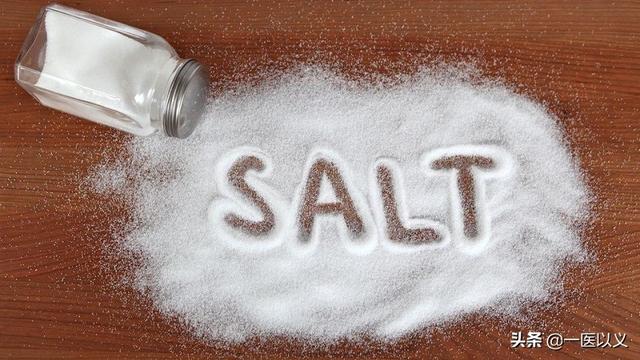
Obesity and too little exercise: obese patients due to excessive intake of high-fat diet, itself, blood lipids will be elevated, and if these people if not exercise, can not be relieved as soon as possible to alleviate obesity, resulting in hyperlipidemia and other adverse effects on the cerebral blood vessels, not only that, with the increase in the degree of obesity, cerebral vascular disease of the incidence of increased significantly, up to 18%, do you know that obesity is also hereditary, and this has been This has been confirmed by the gene.

How do you change these bad habits?
- Recommended Mediterranean Diet. This is strange, living in the Mediterranean around the incidence of cardiovascular disease in the public 40% lower than other areas, researchers further in-depth study confirmed that the local people's dietary habits in the structure of the human body is very conducive to health, thus, the Mediterranean diet is respected. The Mediterranean diet is rich in beneficial dietary combinations, and the diet contains less cholesterol. The following are the characteristics of the Mediterranean diet:
1. Diets rich in plant foods, including fruits, vegetables, whole grains, legumes and nuts, etc.
2. Olive oil is the main cooking oil.
3, fat to provide energy accounted for the total dietary energy ratio of 25 ~ 35%, saturated fat accounts for only about 7 ~ 8%.
4. Consume small amounts of fish, poultry and eggs in moderation each week.
5. Use fresh fruit as a typical daily after-meal food, with sweets consumed only a few times a week.
6. Consume red meat only a few times a month.
7,

- It is not emphasized here to give up alcohol completely, but it does not mean that drinking less alcohol will be good for health, because it is difficult for people to give up drinking. However, according to the characteristics of the Mediterranean diet, it is advisable to drink a small amount of red wine. Smoking is a bad habit that must be abandoned, and the sooner the better, don't wait until the blood vessels have been damaged to think of quitting, to put it mildly, the patient in the neighborhood walking with one leg is a warning.
Enhance physical exercise, nowadays people physical exercise is less and less, the body is not as good as the previous generation, a good body to move. Adhere to 30-40 minutes of physical exercise every day is extremely helpful in controlling blood lipids and lowering blood pressure. Running and swimming are good choices.

All of these habits and diseases increase the chances of brain infarction, and it is important to change bad habits and to ease the progression of the disease.But these are not enough, and middle-aged and elderly people are better off with a combination of medications in order to further prevent cerebral infarction.
(1) In addition to lowering blood lipids, statins target the prevention of cerebral infarction in the following ways.
Statins have an atherosclerotic plaque stabilizing effect on the arterial vasculature that can even be reversed.
The development of cerebral infarction is associated with localized endothelial breakdown of the cerebral vessels, thrombosis, and inflammatory agitation, which statins can serve to control.
Statins can repair endothelial damage and improve endothelial function, as well as having antioxidant properties.
Cerebral neuroprotective effects.
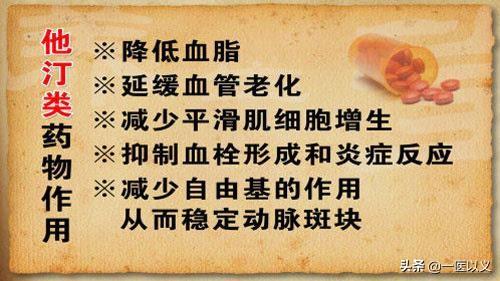
summarize
Cerebral infarction is a big problem for the majority of middle-aged and elderly people, especially those over 50 years of age, the chance of cerebral infarction increases greatly, and some bad habits in life will increase the incidence of cerebral infarction, therefore, change these bad habits, and the reasonable application of preventive medication, can greatly reduce the incidence of cerebral infarction.
In conclusion, I wish you good health.
Cerebral infarction usually refers to cerebral thrombosis, atrial fibrillation patients with thrombus dislodgement causing cerebral embolism. (Cavernous infarction is a special kind of cerebral infarction in which the terminal cerebral arteries of aging are clogged, and the infarction is small, asymptomatic, or has mild symptoms and recovers very quickly with little relevance to today's topic.) Especially, rupture of cerebral atherosclerotic plaques is the most frequent ischemic stroke. Therefore, from the beginning of youth to prevent the occurrence of atherosclerosis risk factors is the best way to significantly reduce the occurrence of cerebral infarction, heart attack during old age, especially some will accelerate, aggravate atherosclerosis of the heart, cerebral thrombosis of bad habits, the article will be described one by one:
Another type of cerebral infarction called cavernous infarction is the most common one belonging to a special form of cerebral infarction, i.e., occlusion of cerebral arterial endings causing necrosis of brain tissues with an area of only 3-15 mm. Cavernous infarcts occur in functional areas and may have mild transient symptoms: dizziness, salivation, slurred speech, mild facial paralysis, and unsteady gait. Most of them occur in non-functional areas, and when they occur, patients have no sensation or symptoms at all, and they are found only after physical examination with cranial CT or MRI. It is mainly related to age and hypertension. There are many theories as to why it occurs, mainly related to aging of the peripheral arteries.
Patients with atrial fibrillation are susceptible to chronic thrombus formation due to the large size of the left heart ear. Once the thrombus breaks off, it will be blocked with the aorta and the internal carotid artery blood flow in the gradually thinning cerebral artery, blocking the blood flow behind it and leading to infarction of the brain tissue in the phasic area. It accounts for about 25% of cerebral infarctions.
Cerebral thrombosis is the most common type of cerebral infarction. Cerebral thrombosis is the most common type of cerebral infarction. It refers to the formation of atherosclerotic plaques in the main artery of the brain or cortical branch arteries, which leads to the narrowing of the lumen of the blood vessel or the rupture of the plaque. This causes a reduction in local blood flow to the brain tissue or an interruption of blood supply, and the brain tissue can tolerate ischemia and hypoxia for only 4-10 minutes. Irreversible death of central nerve cells occurs, and focal neurological symptoms appear. Infarction occurs in small arterial vessels of the school, then cause small area of brain tissue infarction, the symptoms are relatively mild, and the severity of the symptoms and the infarction is not the same as the infarction. The severity and symptoms are related to the size of the infarct and the function governed by the site. The severity of symptoms is related to the size of the infarct and the function governed by the site. Over time, some patients may recover some of their functions.
Massive cerebral infarction occurs in a minority of cases of complete occlusion of the main stem of the internal carotid artery, in a majority of cases of Occlusive thrombosis of the main stem of the middle cerebral artery and the cortical arteries causes complete stroke, which is characterized by complete hemiparesis, visual disturbances, and paralysis of gaze to the opposite side of the lesion. Hemiparesis, visual disturbances, and paralysis of gaze to the opposite side of the lesion. Infarction caused by complete occlusion of the main trunk of the vertebrobasilar artery by plaque rupture and thrombus, which may result in Infarction caused by complete occlusion of the main vertebrobasilar artery by rupture of the thrombus may result in progressive aggravation of consciousness, limb paralysis, and most of the cerebral nerve paralysis, with obvious signs of cerebral edema and increased intracranial pressure, and even cerebral herniation, which is a critical condition with the possibility of endangering the life of patients.
Therefore, people over middle age need to prevent plaque rupture leading to cerebral thrombosis and the formation of cerebral infarction, first of all, to prevent the cerebral arteries from The formation and increase of atherosclerotic plaques cause severe narrowing of the cerebral and internal carotid arteries. Because most atherosclerotic plaque ruptures occur in severely narrowed arteries, it is important to prevent atherosclerotic plaque from rupturing. severe stenosis, and therefore the prevention of hypertension, diabetes, hyperlipidemia and smoking cessation is the best way, because these diseases are the causes of atherosclerotic plaque formation and are all important causes of The endothelial damage of the arteries is an important reason, without Without endothelial damage, plaque will not be formed. plaque will not cause arterial stenosis and plaque rupture thrombus resulting in the occurrence of infarction.
So middle-aged men afraid of cerebral infarction, myocardial infarction must change a few bad habits:
- Eliminate overweight and obesity (keep the body mass index kilograms/heightened meter square is kept below 24/27). Strictly control the diet, especially high-calorie animal and vegetable fats and all kinds of sugars and excessive intake of carbohydrates, outside of three meals rather than some hunger pangs.
- Change the bad habit of sedentary, want to health and longevity every day to adhere to half an hour of a variety of suitable for their own exercise. This can not only improve cardiorespiratory function, ease the rate of organ function decline with age, to increase the compliance of bone and joint activities, coordination can be pre-accidental falls, which is often very helpful to the middle and old people.
- Resolutely quit smoking. Smoking is not a drug addiction, just a bad habit over time into a conditioned reflex: get up in the morning want to fuck smoking, go to the toilet to smoke, after dinner to smoke, happy to smoke, unhappy also want to smoke, busy smoking more, idle also want to smoke, talk, chat, bragging, playing mahjong, playing cards more powerful; but on international long-distance flights for more than ten hours without a person's addiction to smoke and difficult to control, the All as long as the conditions permit is to want to smoke. Think about your sense of family responsibility should also quit smoking.
- People who are impatient, competitive and belong to the sympathetic nerves are particularly sensitive and easily excited are the initiating factors of hypertension and coronary heart disease, and are also at very high risk of sudden cardiac death and stroke. The only answer to the question of how the three gas Zhou Yu was killed by gas on the boat is: malignant arrhythmia ventricular fibrillation!
- Playing mahjong, playing cards is a kind of entertainment, is one of the forms of interpersonal interaction, communication, boredom, do not be too much "top true", excessive seriousness, agitation will often cause unpredictable cardiovascular events, sometimes even fatal!
- For patients who like to drink alcohol and have three highs absolutely do not drink white wine, a small amount of red wine, yellow wine, rice wine, people in their middle age absolutely to prevent alcohol abuse which is very important to prevent the issuance of cardiovascular and cerebrovascular events.
7. Hypertension, hyperlipidemia and diabetes mellitus are all chronic diseases, so don't stop taking the medication arbitrarily just because the indexes of the medication have dropped to the normal range; the decline of the indexes is due to the effect of the medication, and after stopping the medication, these indexes will rebound, which will lead to unpredictable consequences. In modern society, the number of patients with atrial fibrillation caused by extreme enlargement of the left atrium due to rheumatic heart disease has decreased significantly, while atrial fibrillation caused by enlargement of the left atrium due to long-standing poorly controlled hypertensive heart disease, valvular calcification heart disease, and ischemic heart disease is more common.
8. Regular physical examination of their own blood pressure, blood lipids, blood sugar, blood uric acid, liver and kidney function, heart, lungs, thyroid, breast, gynecological attachments, prostate urine, esophagus, stomach, intestines, etc., if necessary, to have an understanding of and comparison is very important.
2021.1. #Industry Personnel Recruitment Program #I'm a Promotion Officer #Weekend Big Classes
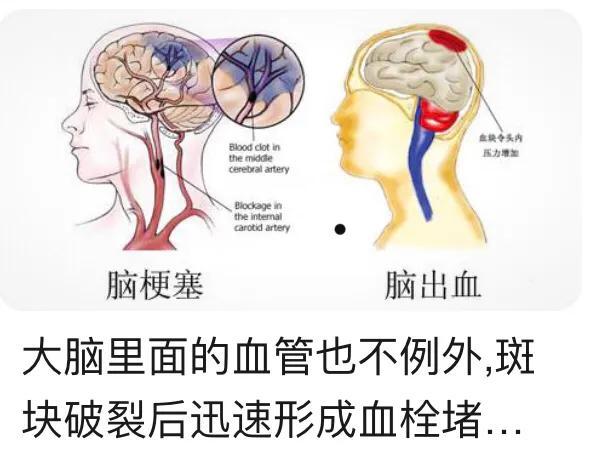
This question and answer are from the site users, does not represent the position of the site, such as infringement, please contact the administrator to delete.